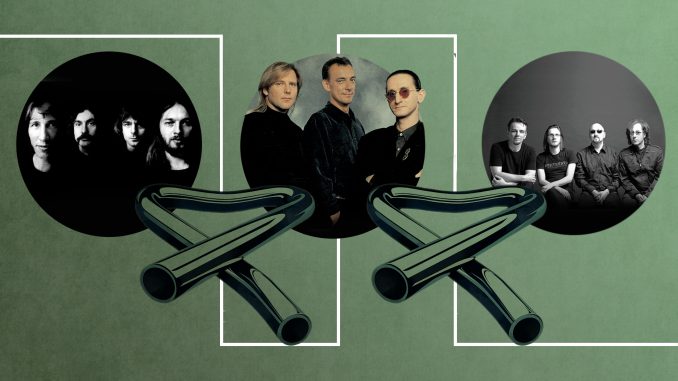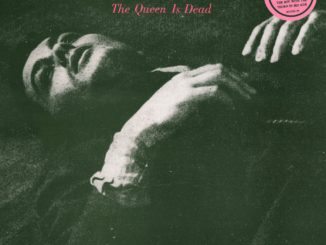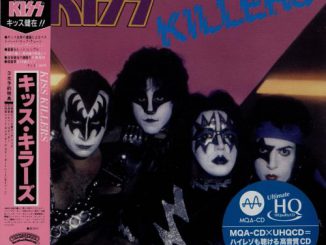
From Discogs, by Ian Shirley
From the musical gymnastics of King Crimson to the extended banquets of Yes, progressive rock is about musical indulgence. Drums, bass, guitar, flute, saxophone, banks of keyboards, a mellotron, and the occasional symphony orchestra mean that nothing is off the table, from the 22-minute suite of Genesis’s “Supper’s Ready” to Big Big Train’s musical reconstruction of the Grand Tour of Europe during the Victorian era. Compelling lyrical invention and rhymes penned by the likes of Peter Gabriel, Peter Hammill, Peter Sinfield, Ian Anderson, or even Roger Waters might fire the imagination like a great fantasy or science-fiction novel but can be secondary to musicianship where the likes of Keith Emerson, Robert Fripp, Steve Hackett, Steve Howe, Mike Rutherford, Rick Wakeman, and Richard Wright (to name a few) unbuckle their musical belts and take listeners on a journey that can start at a “Garden Party” and end up in the cosmos – much to the delight of progressive rock fans around the globe.
Prog Rock History
Technically, the origins of progressive rock lay in jazz. The advent of the long-playing LP in the 1950s allowed jazz musicians to escape the straightjacket of three-minute songs and blow up to 20 minutes per side. Indeed, the symphonies of classical greats could now be recorded and presented as their composers intended. Of course, the short melodic pop song still ruled worldwide singles charts, but 1967 Pink Floyd’s psychedelic hit “See Emily Play” became the gateway to a debut LP that featured the 10-minute glorious exploration of “Interstellar Overdrive.” In the same year, the Moody Blues’ Days of Future Passed offered up a musical journey rather than a collection of songs. As the ’60s ended, more bands – Pink Floyd among them – turned to longer, ambitious musical structures or shorter complex songs laced with musical and lyrical allusion. The Nice’s Keith Emerson thought nothing of plundered West Side Story, jazz and classic terrain transforming the Dave Brubeck Quartet’s “Blue Rondo A La Turk” into the rocking “Rondo ’69.” King Crimson blended highly technical musicianship with power and lyricism. Their debut LP, In the Court of the Crimson King, was a progressive tablet of stone! Like Moses, they had more commandments to follow.
By 1970, major U.K. record labels were not only snapping up progressive bands like Audience, Czar, Caravan, Colosseum, Dr. Strangely Strange, Egg, Fire, The Gods, Jethro Tull, and Spirogyra, but also setting up subsidiaries like Vertigo, Harvest, and Neon to market bands as diverse as Affinity, Catapilla, Cressida, East of Eden, Gentle Giant, Gracious!, Indian Summer, Patto, Spring, and Tonton Macoute. After a poor-selling debut, Genesis found a home on Charisma who, amongst others, gave us Van Der Graaf Generator.
Some progressive bands only recorded one or two collectable albums before falling by the wayside as music executives chased other dragons. A cohort like ELP, Genesis, Jethro Tull, King Crimson, Pink Floyd, and Yes exported the British strain around the world through increasingly ambitious albums like Tarkus, Trespass, Thick as a Brick, In the Wake of Poseidon, The Dark Side of the Moon, and Close to the Edge. Just as punk began snarling at rock dinosaurs, the Alan Parsons Project started their career, serving up a debut LP that took on the works of Edgar Allen Poe and found an international audience with even more expansive concept albums. By the end of the ’70s, Pink Floyd took the progressive concept to its ultimate wall-building height that started their coda. But, despite headwinds, neo-progressive bands like the Enid, Marillion, Pendragon, and Rush ushered progressive rock into the digital age fuelled by music curated by the original progressive explorers.
Read the full article over at Discogs
We have a well stocked catalogue of Prog Rock now in stock, featuring rarities and collectors items from King Crimson, Pink Floyd, Jethro Tull, Gentle Giant and many, many more. Head to eil.com to browse the full selection
Be sure to check out the rest of our catalogue on eil.com, and if you have any items to sell please call us on 01474 815099.
If you need a helping hand ordering then give Roy or Luke a call now on
01474 815 010, by Whatsapp, Live Chat, or by email.
eil.com – the world’s best online store for rare, collectable and out of print Vinyl Records, CDs & Music memorabilia since 1987




Be the first to comment